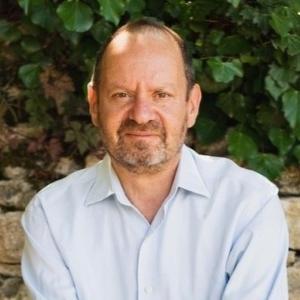As the Council of Europe prepares for its 4th Summit of Heads of State and Government in Reykjavik, join us for a thought-provoking discussion on the future of human rights protection. The second meeting of the "Road to Reykjavik" webinar series, hosted by SWPS University, Riga Graduate School of Law, and the University of Cologne, will feature Professor Philippe Sands, an internationally recognized lawyer, and expert on genocide, as the keynote speaker. Professor Sands will discuss the pressing issue of adjudicating Russian war crimes in Ukraine and the role of Western values in shaping international justice.
Uncovering and addressing war crimes in Ukraine
The Russian army's brutal treatment of civilians during the second stage of aggression against Ukraine has shocked the world. Reports of mass graves in Bucha and Irpin, the bombing of the theater and the neonatal ward in Mariupol, and the kidnapping of Ukrainian children from the occupied territories, as well as the establishment of prisons (which some suggest may be concentration camps) by the Russian separatist forces in the Donbas all indicate that there has been no change in Russian doctrine since the collapse of the Soviet Union. These kinds of actions are still regarded by the Russian army as weapons of war and are carried out with the same barbarity as those committed against Poles, Lithuanians, Latvians, and Estonians during and after World War II, such as the 1940 massacre of Polish officers in Katyń and Soviet mass deportations in the Baltic states. In 2014, when Russia annexed Ukrainian Crimea, the world was stunned but disbelieving. However, the Russian aggression on Ukraine in 2022 has made it clear that Western values, which were supposed to be universal since the collapse of Communism in Eastern Europe in 1989, hold little meaning for Russia and many Russians. Instead, their actions are guided by imperialism and a religious vision of a third Rome promoted by the Russian Orthodox Church. This vision is intended to oppose what they see as the "degenerate West."
Since the beginning of the Russian aggression against Ukraine on February 24, 2022, the world has been grappling with how to judge the atrocities committed by the Russian army. The question of how to hold the perpetrators of these crimes accountable, especially the initiators like Vladimir Putin, Sergei Lavrov, Sergei Shoygu, and Patriarch Kirill (Vladimir Gundjaw), has been the subject of numerous discussions. Undoubtedly, these issues will also have to be addressed during The 4th Summit of the Heads of State and Government of the Council of Europe. During the summit, participants will be compelled to examine the role of the European Court of Human Rights in the future adjudication of Russian war crimes, raising the question of whether to rely solely on the court's extensive experience or to explore its institutional potential.
We will delve into these issues during the second webinar of the "Road to Reykjavik" series. Our keynote speaker will be Professor Philippe Sands, an internationally recognized lawyer, and expert on genocide, who has initiated letters of support for the trial of crimes committed in Ukraine. After his lecture, our discussants, Paula Rhein-Fischer, Ph.D., and Kristaps Tamužs, LL.M, will provide critical commentaries. The meeting will be moderated by Professor Adam Bodnar, a renowned expert on human rights.
The webinar on the "Role of the Council of Europe in Shaping Accountability Mechanisms for War Crimes in Ukraine" will be held in English on the Zoom platform.
Road to Reykjavik: webinar series
The 4th Summit of the Heads of State and Government of the Council of Europe is scheduled for May 16-17, 2023, in Reykjavik, Iceland, marking the first such meeting in 18 years. It will provide a unique opportunity to discuss urgent issues such as the Russian aggression on Ukraine, the crisis of multilateralism, democratic backsliding, and emerging social problems. Although there are easy solutions to these challenges, dialogue is essential to mitigate their consequences.
As the American philosopher Daniel A. Kaufman pointed out in one of his essays, academic discourse blends knowledge with wisdom. Our responsibility as academics is to seek knowledge to enrich the wisdom of decision-makers, especially during current times of social, political, and legal upheaval in Europe.
The joint webinars hosted by the Riga Graduate School of Law, SWPS University, and the University of Cologne aim to foster international cooperation and address the most vital issues concerning the crisis of human rights protection in Europe.
Keynote Speaker

Philippe Sands
Professor
Is a Professor of Law and Director of the Centre on International Courts and Tribunals at the University College of London. He specializes in the theoretical study of genocide and its international legal adjudication. As a practicing barrister he has extensive experience litigating cases before the International Criminal Court, European Court of Justice and the European Court of Human Rights. He authored numerous publications on international law. His most notable work in Poland is the book East West Street: On the Origins of Genocide and Crimes Against Humanity, which examines the lives of two Jewish lawyers, Hersch Lauterpacht and Raphael Lemkin, who created the legal concept of crimes against humanity and genocide. In addition, Prof. Sands frequently provides expert analysis for media outlets such as CNN and the BBC.
Date and location
April 5, 2023 (Wednesday), 12:00–13:30 CEST (UTC+2)
online
Contact
Filip Cyuńczyk
E-mail: This email address is being protected from spambots. You need JavaScript enabled to view it.